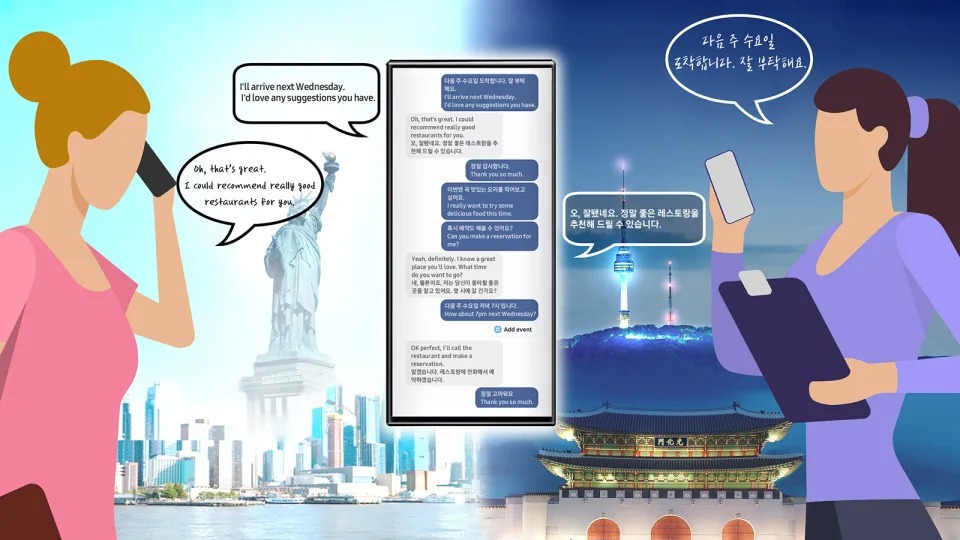In a groundbreaking move, Samsung is set to introduce its own AI-based real-time phone call translation feature, promising a leap beyond the current standards. The revelation came during a recent Samsung Developer Conference presentation, igniting anticipation for a game-changing addition to future Samsung smartphones.
Unveiling the Feature
Samsung’s real-time translation feature aims to eliminate language barriers during phone calls seamlessly. Unlike conventional methods that require separate translation apps, this AI-driven innovation will automatically translate conversations, facilitating smooth communication between individuals speaking different languages.
Samsung vs. the Competition
While Google has already ventured into the realm of real-time phone call translation on Pixel phones, Samsung aims to surpass the competition in both comprehensiveness and accuracy. The presented details suggest that Samsung’s AI will outshine, capable of translating over 100 languages with a nuanced understanding of various accents and dialects. Furthermore, the AI will adapt to the conversation context, ensuring more precise translations.
Anticipated Benefits
The adoption of AI-based real-time phone call translation brings forth a myriad of advantages:
- Convenience: No need for separate translation apps, making international communication more accessible.
- Accuracy: Leveraging advancements in AI translation technology, Samsung’s feature promises high levels of accuracy, enhancing the quality of communication.
- Affordability: As AI translation becomes more cost-effective, this feature could find its way into a broader range of smartphones, democratizing its accessibility.
Potential Concerns
Despite its promise, the technology raises a few valid concerns:
- Privacy: The potential collection and storage of personal data through AI-based translation technology could raise privacy issues.
- Complex Situations: AI may struggle in intricate discussions, such as technical or legal conversations, posing a challenge to its universal applicability.
- User Acceptance: Some users might be wary of AI listening in on their calls, potentially hindering the widespread adoption of this feature.
Release and Future Prospects
While Samsung has not specified a release date, the feature is expected to debut on upcoming Samsung smartphones in the near future. As AI-based real-time phone call translation becomes a reality, it holds immense potential for various scenarios:
- Businesses: Facilitating global communication between businesses, customers, and partners.
- Tourists: Enabling tourists to communicate effortlessly with locals during their travels.
- Students: Enhancing communication between students, foreign language teachers, and classmates.
- Immigrants: Offering a tool for immigrants to bridge language gaps in their new communities.
Conclusion
Samsung’s venture into AI-powered real-time phone call translation signals a new era of communication. While the benefits are enticing, users must remain mindful of potential drawbacks. As this technology unfolds, it has the capacity to redefine how we connect, breaking down language barriers and fostering a more interconnected world.










1 Comment